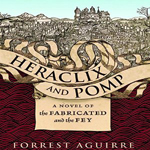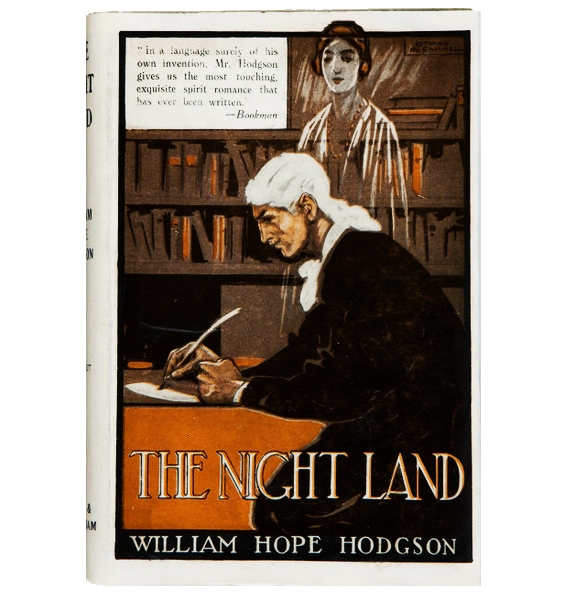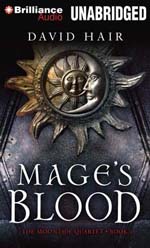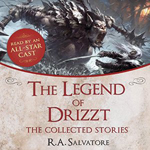
 The Companions (Forgotten Realms: The Sundering, Book 1)
The Companions (Forgotten Realms: The Sundering, Book 1)
By R.A. Salvatore; Narrated by Victor Bevine
Publisher: Brilliance Audio
[UNABRIDGED] – 15 hours
Themes: / fantasy / magic / Forgotten Realms / wizard /
Publisher summary:
On the dusty plains of Netheril, a young Bedine girl spins a web of forbidden magic, obliterating a pair of assassins with a single lightning strike. On the banks of the Sea of Fallen Stars, a tiny thief walks willingly into battle with a ruthless killer, a wide grin upon his face. In the tunnels of Citadel Felbarr, a dwarfling is ambushed and strikes back with an attack well beyond his apparent strength and years. These three seemingly unrelated commoners, growing up across the far reaches of the Forgotten Realms®, hold the fate of Faerûn’s most famous dark elf, Drizzt Do’Urden, in their hands. But that fate is far from certain. For in the shadows a cunning cabal of wizards is watching, intent on hunting Chosen—mortals blessed by the gods. These wizards know something mere commoners do not: Long-forgotten gods have begun to stir. Long-lost lands have begun to tremble. The world around them is about to change. And these wizards will do whatever it takes to turn the coming chaos to their advantage. In this first book of the six-book Sundering series, New York Times bestselling author R.A. Salvatore launches a major world-shaping event that will revive old favorites, introduce new complications, and move his signature hero Drizzt into a restored era of the Forgotten Realms.
Oh, Salvatore. Never change.
Drizzt Do’Urden is back in The Companions, although in a very limited fashion. The bulk of the story focuses on Cattie-brie, Bruenor, and Regis as they are (I am not making this up) sent back to live again, from birth onwards, in order to help Drizzt far after their original deaths.
Yep. They have adult consciousness in baby bodies. They’re aware of the sensation of being birthed. They have completely adult, mature minds trapped in little toddler dwarf/human/halfling bodies. They have to struggle through relearning how to walk, eat, be toilet trained…let me back up.
Mielikki, a goddess of nature, allows the Companions to chose whether to be reborn in order to help Drizzt in a time of great need. Wulfgar appears to chose not to, electing to go to his heavenly reward instead, but the others are all reborn and go through childhood. They constantly work to hide their identities while being somewhat torn in their loyalties. The story culminates with their reunion with a wounded Drizzt and his magical panther, Guenhwyvar. Even Wulfgar shows up at the end, and it’s nicely set up for the next book in the series.
Did I mention the vampire drow? Or the dolphins? This book has it all.
Except for the beginning and end, Drizzt is not part of the action. He has escaped capture and is considered lost, so instead each chapter begins with a letter of his, a seeming memoir, on a theme that is then touched upon in Cattie-brie, Bruenor, and Regis’s new lives.
I’m not sure I’d necessarily recommend this book, as it was very odd. I did enjoy it, even as I laughed at some of the parts, and would definitely listen to the next one.
The narrator did a really good job, even managing to pull off a falsetto for the female characters voices without it turning off-putting. There was a short bit of music in between each disc, and they repeated the first few sentences from the last disc in the first track of the next disc.
Posted by Sarah R.
 Heraclix and Pomp: A Novel of the Fabricated and the Fey
Heraclix and Pomp: A Novel of the Fabricated and the Fey




 The Shield-Maiden (The Foreworld Saga: A Foreworld SideQuest #4)
The Shield-Maiden (The Foreworld Saga: A Foreworld SideQuest #4) Mage’s Blood (The Moontide Quartet #1)
Mage’s Blood (The Moontide Quartet #1) The Legend of Drizzt: The Collected Stories
The Legend of Drizzt: The Collected Stories